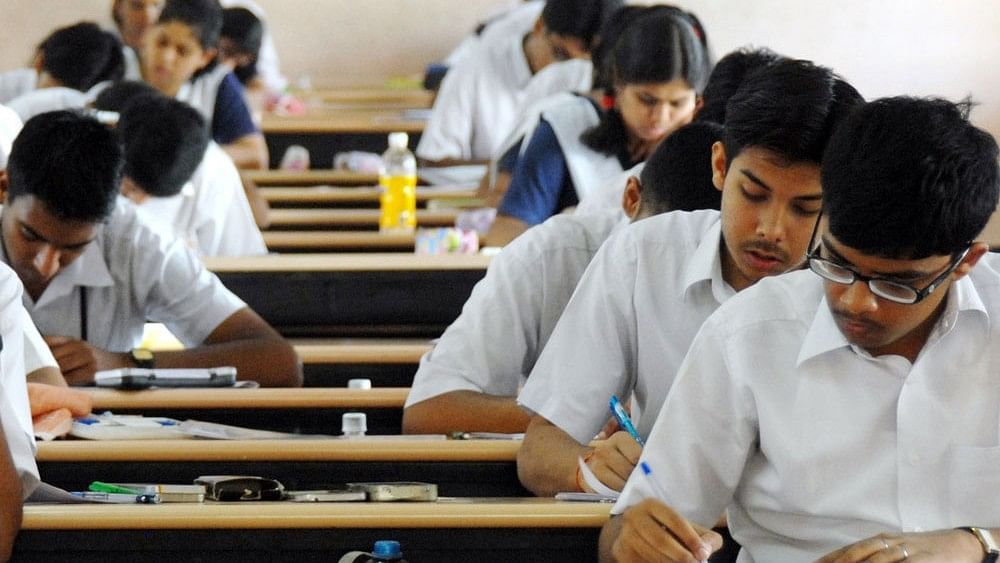
Cheating in exams has been a major concern.
Credit: DH Photo
The Public Examinations (Prevention of Unfair Means) Bill passed by parliament in its just concluded session seeks to address a problem that has become a threat to the country’s examination system. The Centre has conceived a substantive legislation that will serve as a model draft for states in their efforts to curb cheating in exams. Some states have laws intended to curb cheating but the central legislation is expected to help the states to address the problem comprehensively. The objective of the bill is to prevent “unfair means” and to bring greater transparency, fairness and credibility to the public examinations system, which will provide an even playing field to candidates. The scope of the legislation covers all exams in the education sector, including entrance tests conducted by the National Testing Agency and those held for jobs by the UPSC and various departments like the Railways and defence, and agencies like the Institute of Banking Selection.
There are recurrent reports of cheating in exams from all over the country. Many of them have political dimensions, too. Parties in the Opposition have tried to put ruling parties in the dock over incidents of leakage of question papers and other malpractices. At least 41 instances of paper leaks have caused disruption of recruitment processes for government jobs in 15 states over the past five years. As many as 1.4 crore applicants for about 1 lakh posts have been affected. In some cases, exams that were cancelled because of malpractice were not held for many months. The bill mentions 15 actions, such as leakage of question paper or answer, as unfair means. The offenders might face up to 10 years in jail and a fine of Rs 1 crore. Harsher punishment has been prescribed in the case of organised paper leaks. The offences will be cognisable, non-bailable and non-compoundable. The police can act without a warrant and offences cannot be settled through compromise.
These are stringent measures and are in line with the trend of prescribing the harshest punishment for all offences. But examination malpractices should not be seen as only matters of crime and punishment. They are also symptomatic of the moral slide in society and the readiness to use any means to achieve selfish ends. The problem of cheating in exams also turns the spotlight on the widespread unemployment and the race for opportunities in all fields. The economy and society are unable to provide enough opportunities and such an environment is congenial for unethical and criminal activities. Malpractices in examinations affect the youth most and therefore governments have to be concerned most about them. The bill is a result of that concern.